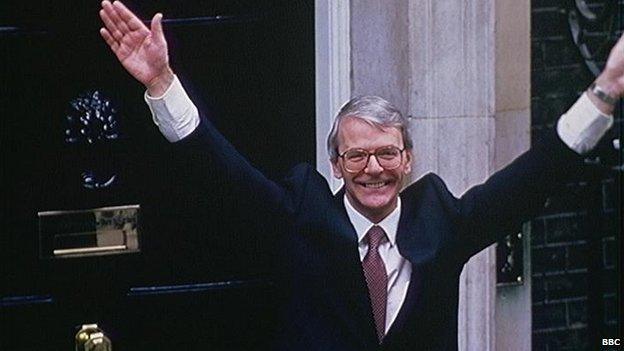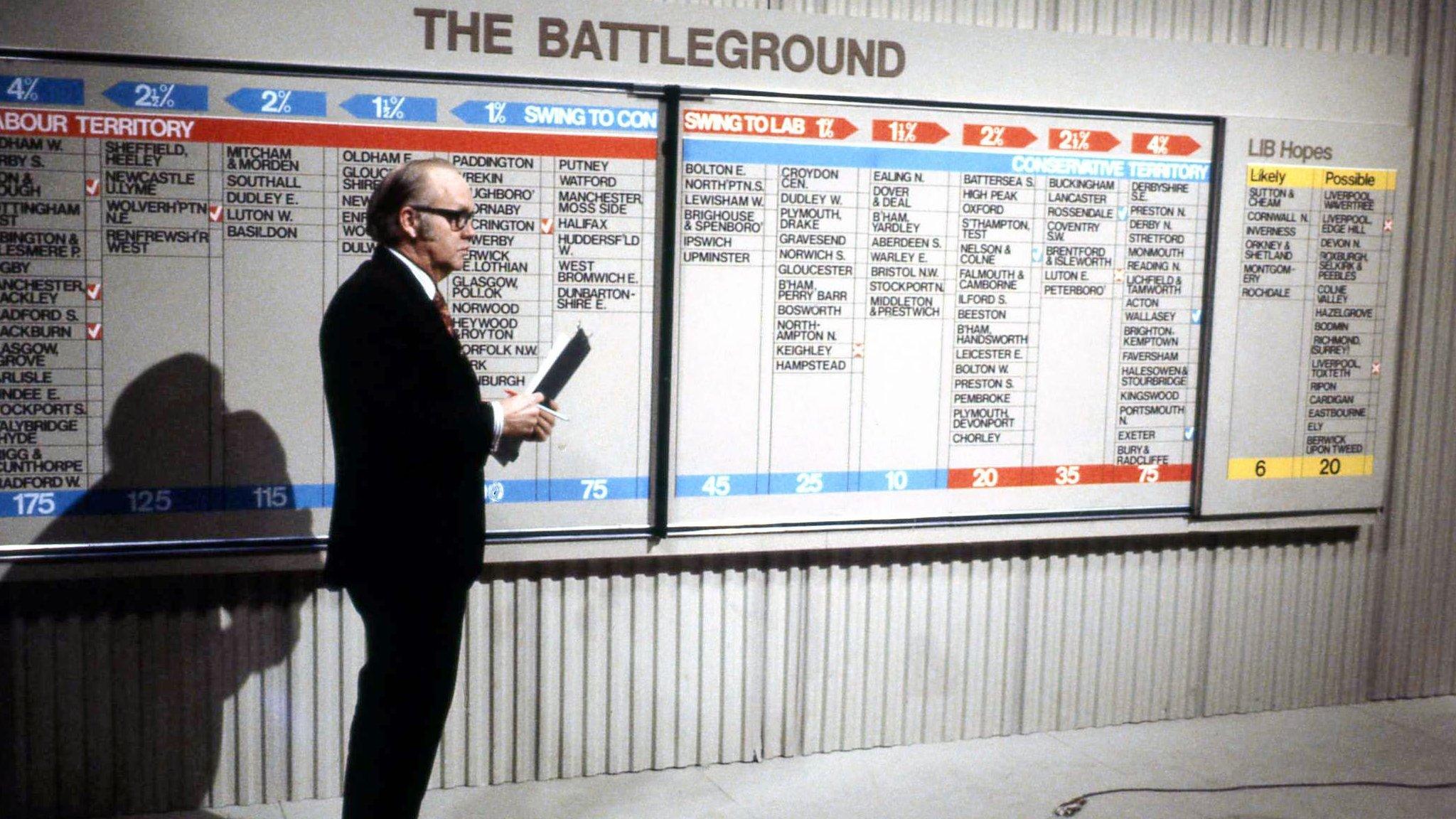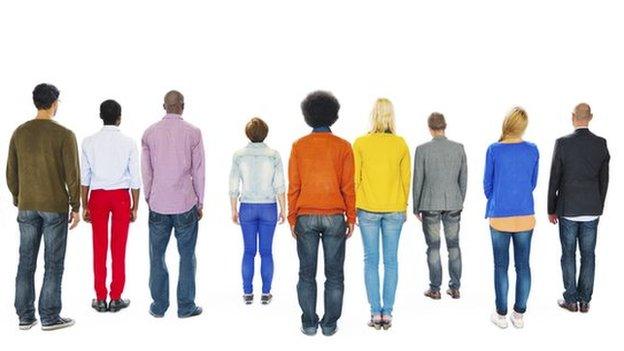Election 2015: Five answers for an election geek
- Published
Jeremy Vine answers his five questions to test just how well you know the margins, the majorities and the members ahead of the general election.
Are you the ultimate election geek?
Can you remember the swing percentage in your aunt's constituency from 1979? Do you know where Margaret Thatcher stood before winning in Finchley?
Jeremy Vine answers his five questions to sort the first-past-the-post from the proportionately under-represented.
However, if you have a question you would like to submit for Jeremy to answer, you can send it to haveyoursay@bbc.co.uk, external or use the form at the bottom of this page.
Alternatively, you can visit this page for all the ways you can submit your own election geek question for Jeremy.

So, how did you do?

Did the holding of Basildon signal victory for John Major in 1992?
Which is the most marginal seat?
Congratulations to Gavin in Newry, who got it right. Joe Collins, of Lewisham, guessed Warwickshire North, which is close with a margin of only 54.
Which seat is the most-effective bellwether?
Many people answered Basildon (and Billericay), which Labour failed to gain in 1992, a sign of their ensuing defeat to John Major's Conservatives.
What, in 2010, was the lowest since 1918?
Congratulations to Ryan Devlin and Liam Howard in Croydon who got it right. The overwhelming educated punt, however, was for Turnout. While the lowest turnout for a general election was in 1918, both the 2001 and 2005 elections had a lower turnout than 2010.
What swing do Labour or the Conservatives need to win?
Congratulations to Joe Collins in Lewisham, who was closest. All the answers we received were close, with nobody suggesting more than 7% was needed for either party to gain an overall majority.
What were the biggest post-war swings for either the Conservatives or Labour?
Many people nominated 1983 as their answer for the largest swing to the Conservative Party. Although not correct, that election saw a 3.8% swing from Labour to the Conservatives, adding 58 seats to their majority.
And congratulations to Francis Newman in St Andrews, Jacob Archbold of Chalfont St Peter, and Mickey Conn of Sheffield, who were the first people to get four out of five correct.

- Published14 April 2015

- Published30 March 2015

- Published1 April 2015
